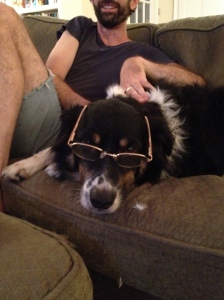The prompt for this response was: Response to Moretti, and yet my response is not so much to Moretti, but to the “questions that appear to us to be completely unsolved.”[1] I stand with my classmates on the challenge of understanding and contextualizing all of the specialized knowledge Moretti’s essays seem to ask us at least to have encountered. Setting my own dilettantism aside, let’s just say that Herr Keuner, a character to whom (I now know) Bertolt Brecht returned over and over again from the 1920s until his death, and into whose mouth Brecht wrote the line about the list of questions, knew how I felt at points during my first reading of Graphs, Maps, Trees: Abstract Models for Literary History:
“We can’t go on talking to each other,” said Mr. K. to a man. “Why not?” asked the latter, taken aback. “In your presence I am incapable of saying anything intelligent,” complained Mr. K. “But I really don’t mind,” the other comforted him. “That I can believe,” said Mr. K. angrily, “but I mind.”[2]
That said, Moretti’s considerable text, in combination with the illustrated figures, delivered punctuated nodes of insight, illusory as some of these turned out to be in the end… and (I would think) equally varied according to our own previous exposure to the literary, critical and theoretical works cited in the text. In a certain sense, the point that we can understand a good deal (more?) about literary history through macroanalysis and subsequent texturing and visual representation of data is the main point that he conveys. What we can expect to find is that our own ability to act on these questions without apparent answer will depend on our commitment to seeing the relationships between things, and to grasping and fully considering how scale and proximity in space will be able to catch up to the longer established relationships between time and human activity we have called history.[3]
While Piazza’s response represents a constructive attempt at engagement between disciplines, it also functions as a defense against some of the erosion of the science resulting from Moretti’s inexpert treatment of the subject. I wonder how well he does with the field of literature? What are the distinctions we historians need to draw between history and literary history and analysis? How do we think about our sources as historians in comparison to scholars of science, literature and other fields?
[1] “Could we not, in the interest of propaganda, draw up a list of the questions that appear to us completely unsolved?” Moretti, Graphs, Maps and Trees, 26; Like Pound, Moretti is talented at condensing ideas and stringing together a chain of esoteric evidence in service to arguments that sometimes seem to be internally contradictory, or at least generously dualistic. His graphs, maps and trees are approximate and not representative. His exploitation of science is uneven, less than rigorous, and of limited value as direct analog, as acknowledged by Moretti himself, and made apparent by Piazza especially with regard to the centrality of cultural selection and natural selection in the study of literature and evolutionary biology, respectively. Moretti also has a predilection for breaking with conventions in his writing.
[2] Brecht, Bertolt. “Conversations.” In Stories of Mr. Keuner. San Francisco: City Lights Books, 2001, p. 25; Nord, Christiane. Text Analysis in Translation: Theory, Methodology, and Didactic Application of a Model for Translation-Oriented Text Analysis. Rodopi, 2005, 139-141; One of the things I discovere while trying to make sense of this book is that Brecht died on my mother’s fifth birthday and was born a hundred and fifteen years ago yesterday.
[3] I hope my classmates will recognize (and forgive) my attempt at imitating Moretti’s style in this post. I also look forward to sharing my observations on a talk I attended at IUB, given by Matthew Jockers of the University of Nebraska, Lincoln and formerly of Stanford, as a collaborator of Moretti’s. Jockers’ most recent work is an attempt to correlate theme, geography and sentiment in a large corpus of nineteenth-century literary novels using computational text analysis and advanced topic modeling algorithms.

